#Napoleon and women
Text
“The women are everywhere—plays, public walks, libraries. You can see pretty women in the scholar’s study room. . . . A woman, in order to know what is due her and what power she has, must live in Paris for six months.”
— Napoleon in a letter to his brother, Joseph
Source: J. Christopher Herold, The Age of Napoleon
#the emperor has spoken ☝️#napoleon#napoleon bonaparte#joseph bonaparte#Joseph#J. Christopher Herold#herold#Paris#napoleonic era#napoleonic#first french empire#french empire#france#women’s history#19th century#history#Napoleon’s correspondence#letter#Napoleon’s quotes#Napoleon and women#women#Napoleon’s brothers#the age of Napoleon
117 notes
·
View notes
Text
how to recognise a mike flanagan show:
1. people saying 4 pages of dialogue to another person who will stare back at them, looking devastated
2. mike flanagan's wife looking unbelievably hot
3. gay activity
4. carla gugino scaring the shit out of someone
5. just the worst gore you have ever seen. only for a few seconds. but christ it will stay with you
#i am adoring the new spooky show very much thank you#the fall of the house of usher#prospero usher#frederick usher#tamerlane usher#victorine lafourcade#napoleon usher#camille l'espanaye#roderick usher#bruce greenwood? izombie reunion? beautiful women? familial doom? i am TUNED IN#tfothou#horrific acronym
11K notes
·
View notes
Text
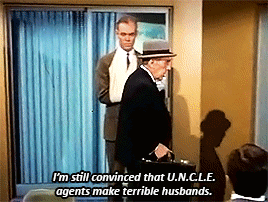
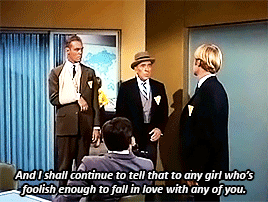




#the man from uncle#the man from uncle tv#illya kuryakin#napoleon solo#alexander waverly#4x14 the deep six affair#napoleon's lil wave......biting him biting him biting him#waverly: im not letting you guys get married to women#illya (for completely heterosexual reasons): we have each other#tmfu#napollya#ray.gif
320 notes
·
View notes
Text
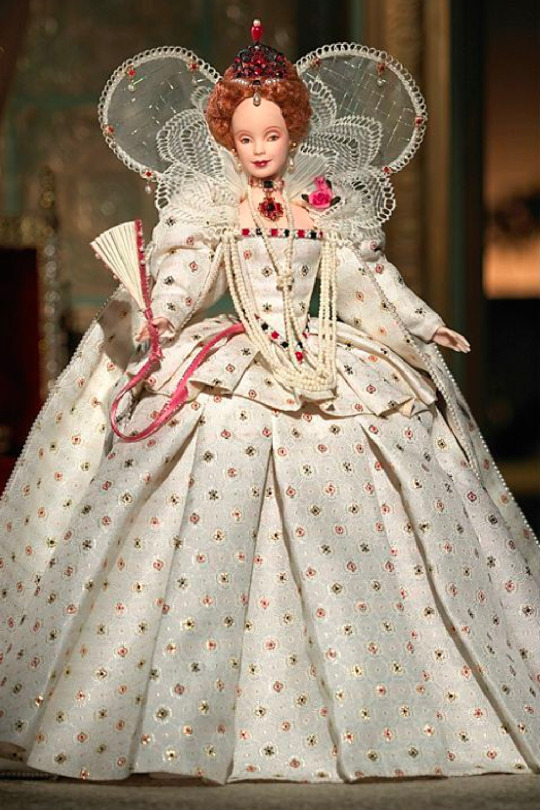
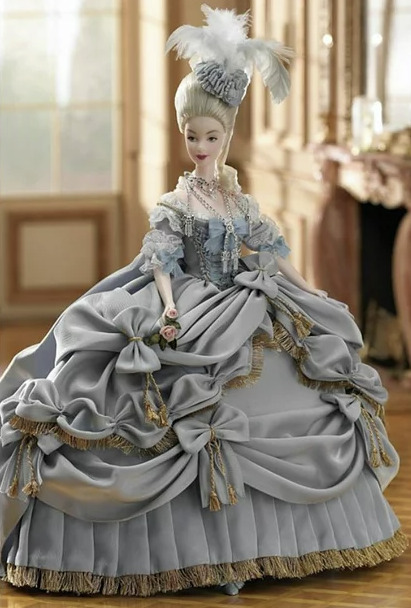
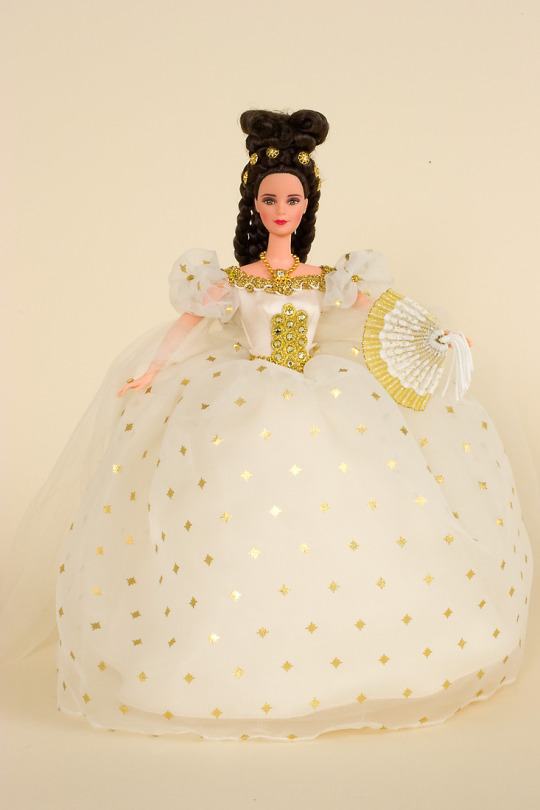

Barbie Collector - Women of Royalty
Queen Elizabeth the First
Marie Antoinette
Sissi, the Empress
Joséphine de Beauharnais/Bonaparte
#barbie#barbie doll#collection#collector#90s#history#women of royalty#napoleon#empress sissi#marie antoinette#historical figures#uk#france#austria#doll#porcelain#queen elizabeth I#sissi the empress
356 notes
·
View notes
Text
most of war and peace is just men creating issues for themselves while women suffer the worst horrors imaginable.
#and then somehow at the end all the men figure out their lives in one way or another (because of the suffering women).#and also napoleon is there#war and peace#leo tolstoy#russian literature#natasha rostova#pierre bezukhov#andrei bolkonsky#nikolai rostov#marya bolkonskaya
142 notes
·
View notes
Photo
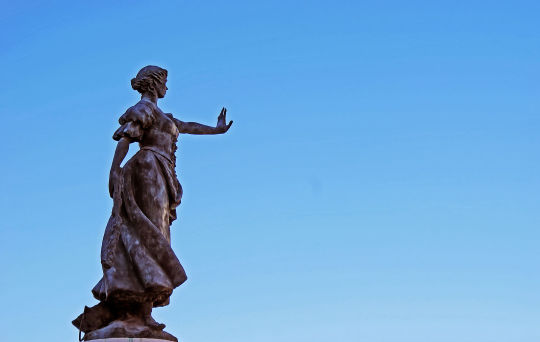
(Photo: Carmen Escobar Carrio)
Juana Galán - Heroic guerrillera
When the French invaded Spain during the Peninsular War, some women were determined to resist. Among them was Juana Galán (1787-1812), the daughter of a prosperous tavern keeper.
On June 6, 1808, a column of 1,000 enemy troops attacked the town of Valdepeñas. Juana rallied the townswomen under her command. They manned the windows and threw boiling water and oil at the enemy.
Juana went to the street armed with a club. She reportedly pulled several French soldiers from their horses and dispatched them with a blow to the head. The townspeople’s fierce resistance forced the French to retreat and never return.
Juana didn’t live to see the end of the war. She died in 1812 while giving birth to her daughter. Her legacy lives on and she was made a local heroine and a symbol of resistance. She now has her own monument in Valdepeñas.
Like Juana, other women fought in desperate situations or during riots, sometimes with improvised weapons. In 1809, an unnamed woman armed with a sword rallied the inhabitants of Penafiel (northern Portugal) and led them in battle against the raiders. In 1811, María Marcos, a tavern keeper from La Palma del Condado, played a key role in repelling a small group of French soldiers.
There were also cases of women involved in guerrilla warfare. The Catalan Somatén, a paramilitary defense organization, had female members such as María Escoplé, Magdalena Bofill, Margarita Tona, María Catalina and Catalina Martín. Francisca de la Puerta reportedly fought in Extremadura and commissioned the Junta of her province for permission to form her own guerrilla band.
Wanting to avenge her father and brother, Martina de Ibaibarriaga Elorriagafora disguised herself as a man and led a guerrilla band until she gained a commission in the Spanish army. An unnamed woman was given the command of a troop by the Junta of Molina de Aragón in 1809. A British officer also mentioned women serving with bands of irregulars as active combatants.
For more heroines of the Peninsular War, see Agustina de Aragón.
Feel free to check out my Ko-Fi if you want to support me!
Further reading
Esdaile Charles J., Women in the Peninsular War
Sheldon Natasha, “Juana Galan: A Spanish Heroine of the Peninsula War”
#Juana Galán#history#women in history#spain#spanish history#peninsular war#napoleonic wars#19th century#women's history#warrior women#war#women warriors#historyblr#badass women#historicwomendaily#historical ladies#warriors
68 notes
·
View notes
Text
I don’t have time to draw because of this goddamn school
I go home to come back to school 🥲
My life is literally in school I’m sick of this
Good thing is that soon I’m going to have winter vacation yipeee !!

Anyways, say hello to Maria Walewska. She’s such a beautiful lady ❤️
#drawing#digital art#duchyofwarsaw#księstwowarszawskie#Maria Walewska#marie walewska#polish history#napoleonic era#Polish women = ❤️#Maria Walewska appreciation post
58 notes
·
View notes
Text
approximately half of my working knowledge of napoleon's life comes from the time my mom and i went down a rabbit hole reading the wikipedia of his wife josephine to each other (it's some wild stuff) so i would just like to state for the record that the upcoming movie casting an actress more than 10 years younger than than the lead is Extremely Cowardly since it was a significant scandal at the time that she was older than him
#of course as we know all women cease to be sexy or interesting the moment they turn 40#so CLEARLY the only option was a 35 year old actress#no judgment about vanessa kirby i'm sure she's a perfectly good actress but come ON#pie says stuff#history#napoleon 2023
51 notes
·
View notes
Note
do you have some good sources about how women during the frev thought about universal male suffrage?
(i've been uncomfortable with some claims about how the frev was not feminist enough because women got the rights to vote in the 20th century, but cannot back up this discomfort.)
"I am quite limited on certain subjects and this is one of them (I am currently researching the exact thoughts of women during the French Revolution on universal suffrage).
Unfortunately, it has been a great shame that the French Revolution was misogynistic despite the meager rights that were gradually taken away from them over time. Even the greatest progressives like Sylvain Maréchal, who was an important disciple of Babeuf, had as a project to ensure that women did not have a say in the learning of reading.
The fact that misogyny was already present during the Ancien Régime (Marie Antoinette is blamed for all evils when in reality she did not have much say during her husband's reign, to better absolve Louis XVI and the policy of France under this absolute regime) or that Napoleon made the condition of women worse than that of Italy or Spain (I mentioned this in my post 'Women's Rights Suppressed') while being a great hypocrite does not absolve the revolutionaries for what they did in their misogyny.
There was a habit of attacking the wives of their adversaries to better discredit them (like Manon Roland, Marie Françoise Goupil, wife of Hébert, Lucile Duplessis, wife of Desmoulins), which is an interesting parallel on this point with the attacks against Marie Antoinette.
Olympe de Gouges spoke about the rights of women and citizens. Pauline Léon, Claire Lacombe, who demanded the right to organize in the national army. Théroigne de Méricourt, Louis Reine Audu, and again Claire Lacombe fought in the Tuileries and yet, despite being rewarded with a civic crown, they would not have the right to speak on universal suffrage.
Chaumette was a great misogynist, Robespierre too (one could tell me that he supported Louise de Keralio's candidacy for her entry into the academy, but in political matters, it was another story), Danton, Sylvain Maréchal, Amar, etc. I am not here to blame Robespierre and I deplore that there is a black legend about him, but one can see a certain purely political gesture in my opinion for the action he will take towards Simone Evrard.
As much as Simone Evrard is a very intelligent woman, with an extraordinary destiny very underestimated, capable of making very good political speeches (one of the people of the French Revolution that I admire the most), I wonder if the fact that Robespierre personally introduced her into the Assembly was just an opportunistic gesture because he would have had an additional reason to discredit Jacques Roux and Théophile Leclerc thanks to the speech she made while he was among the revolutionaries who approved the restriction of women's rights. Respect towards Simone Evrard regarding her dignity and intelligence (maybe even surely) opportunism, I would be tempted to answer on this by affirmative.
Risking repeating myself, Napoleon being a greater oppressor towards women by taking away the few rights they had, enacting oppressive and hypocritical laws, and even bloody ones concerning them, does not absolve the other revolutionaries of their sexism.
And there is no excuse that it was of their time (in fact, I noticed that this lie is used in my opinion to absolve Napoleon but not the revolutionaries, but forced to see that it fits into the same idea)... First of all, Charles Gilbert Romme was more progressive in women's rights, Marat and Charlier too, Camille Desmoulins thought that women could have the right to vote, Condorcet demanded gender equality, Guyomar opposed the exclusion of women from universal suffrage. Worse than anything, while the clubs and societies of women ended up being banned, which is a regression.
In 1795, for attempting to revolt against the Assembly which abolished the social policies of the Montagnards, they were prohibited from attending assemblies and even from gathering in the streets in groups of more than 5. Moreover, the term 'tricoteuse' to insult women was not invented during the Napoleonic era or the royalist era but in 1795.
What did women think about this? This is where I am quite limited because besides the answers I have given about these women and their actions, unfortunately, there is not much else I can say due to my limited knowledge.
In any case, I hope I have helped a bit to support the aforementioned statements.
In the meantime, I can provide some of my sources: the historian Mathilde Larrère, Antoine Resche who made very good summarized portraits of some revolutionary women on the website 'veni vidi sensi', I would also recommend reading the book by the writer Claude Guillon on Robespierre, women, and the Revolution (even though I completely disagree with some of his books that have been legally condemned, this one is rather good and he had a quite good blog on the French Revolution that I recommend checking out), and the historian Jean-Clément Martin, 'La révolte brisée'."
14 notes
·
View notes
Text
today yaggy dropped a nuclear bomb on me by revealing to me that supposedly Soult had multiple mistresses??? not just the Spanish woman??? well who was/were his other mistress(es) then???? I'm so confused this was the first time I'd heard of this
#napoleonic#napoleonic era#napoleons marshals#jean de dieu soult#PLEASEEEE I NEED ANSWERS#WHO WAS THIS OTHER WOMAN???? OR WOMEN????#WHY DIDN'T I HEAR ABOUT THIS TILL NOW LIKE#napoleon's marshals
20 notes
·
View notes
Text
JOANNA ZUBR // SOLDIER
“She was a Polish soldier of the Napoleonic Wars, a veteran of the Polish-Austrian War, and the first woman to receive the Virtuti Militari, the highest Polish military decoration. After the outbreak of the war, Joanna and her husband joined the army of the new Duchy, with Joanna initially a camp-follower. Soon she enlisted in the 2nd Infantry Regiment as a private, hiding her gender from both her superiors and fellow soldiers. In 1809, Joanna took part in the Galician Campaign, distinguishing herself in the Battle of Zamosc where she was given the Virtuti Militari.”


9 notes
·
View notes
Text
Napoleon’s relationship and Madame de Staël
“It was certainly not a product of the groundless claim that Napoleon disliked ‘intellectual women’, a jibe repeated even by so powerful a mind as that of Pieter Geyl. His close relationship with his step-daughter, Hortense, his singular efforts in the realm of girls’ education, and the power he gave two of his sisters — Elisa, in Tuscany, and Caroline, in Naples — readily belie this. Napoleon viewed Staël in no small part with the eye of Figaro: She was a spoiled product of ancien régime privilege, the daughter of a powerful minister and financier, the wife of an aged aristocrat she played for a fool; she was just a ponce, however clever. To Napoleon, she was patronising the parvenu. As with Figaro, confrontation with such a creature could cloud the mind, but this was the exception to the rule.”
— Michael Broers, Napoleon: Soldier of Destiny
#Michael Broers#Broers#Napoleon: Soldier of Destiny#napoleon#napoleonic era#napoleonic#napoleon bonaparte#first french empire#french empire#madame de staël#de staël#germaine de staël#Napoleon and women
25 notes
·
View notes
Text
Maria Carolina of Naples, post-Leipzig, is like “every day I live in fear that my granddaughter Marie Louise will escape and leave to Elba and be with her husband, Napoleon, by approaching the guards with the co-sign ABC123, and then taking this boat I purchased rigged for Elba, it’s right there, can’t miss it.”
#Marie Louise#Maria carolina#napoleon#it’s just a funny episode#especially since maria Carolina. sister of Marie antoinette. and someone who lost her throne to napoleon is not part of his fan club#but she is…part of the marriage fan club#’oh only misogynists want Marie Louise to obey her marriage vows’#the only people who wanted her to obey them at the time were women#obligatory; yes Marie Louise was securing Parma for her son etc Al. but then she also didn’t
10 notes
·
View notes
Text
i think if i was a book character with no canon height everyone would think i was/draw me short :(
#based on personality. maybe.#i do have a gentle giant thing but i also have a napoleon complex despite being taller than most women
9 notes
·
View notes
Photo
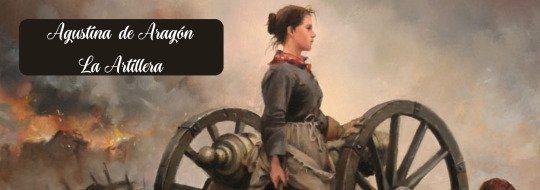
Agustina de Aragón, Casta Álvarez and other heroines of the siege of Zaragoza
In 1808, the Spanish city of Zaragoza was besieged by the armies of Napoleon Bonaparte. The Peninsular war was raging as the Spanish people resisted the French occupation.
Women distinguished themselves in defense of their homes. One of them was Agustina Raimunda María Zaragoza Doménech (1786-1857), also known as Agustina de Aragón.
Defender
In 1803, she married Juan Roca Vilaseca, a corporal in the Spanish Artillery. Since her husband had been stationed in Zaragoza in 1808, Agustina was present when the French troops besieged the city.
Many of the Spanish defenders of the strategic Portillo Gate had been wounded or killed following the French assaults. The enemy was beginning to storm the city. Agustina, who had been carrying food and water to the soldiers, stepped into the breach, retrieved a still-burning wick from the hand of a fallen gunner, and fired the cannon at the advancing French soldiers. Her courage rallied the defenders who repelled the assailants, thus saving the gate.
The Spanish Commander in Zaragoza, José de Palafox, heard of her bravery and rewarded her. Her exploit also won her international fame. Lord Byron wrote, for instance, a poem in her honor.
Zaragoza’s other heroines
She wasn’t the only woman to take arms. Another was Casta Álvarez (1786-1846). Armed with a bayonet, she defended the Sancho Gate and was later awarded a pension by King Ferdinand VII.
Manuela Sancho (1783-1863) fought to defend the San José convent, riffle in hand. María de la Consolación Azlor, countess of Bureta, (1773-1814) organized a battery to repel a French assault on her home. The names of Benita Portales, Juliana Larena, and María Lostal are also remembered. Women also nursed the wounded and brought food and drink to the soldiers. María Agustín (1784-1831) was, for instance, wounded when bringing ammunition to the defenders.
This first siege ended on August 14, 1808, but the French returned to besiege the city on December 19, 1808. Agustina wanted to fight but had contracted typhus and could only watch from her sickbed as the city was taken. Captured by the French, she and her son were forced to march to the frontier among a column of prisoners. She would probably have died if an officer had not placed her on the back of a mule. Agustina made it to Puenta de la Reina where she escaped. Her son died shortly afterward.
Ensign
Agustina reached the nearest headquarters of the Spanish army. She was made an ensign and served with her unit in Seville. She later fought in the defense of Tortosa and the battle of Vitoria, though her participation in the latter is subject to doubt.
After the end of the war in 1814, Agustina followed her husband to various military posts. After he died in 1823, she remarried to a doctor. She died in Ceuta on 29 May 1857.
Further reading
Esdaile Charles J., Women in the peninsular war
Fernandez Gilbert G., “Agustina de Aragón”, in: Bernard Cook (ed.), Women and war, an historical encyclopedia from antiquity to the present vol.1
Lawrence Tone John, “Aragón, Augustina”, in: Higham Robin, Pennington Reina (ed.), Amazons to fighter pilots, biographical dictionary of military women, vol.1
Navascués Alcay Santiago, “Casta Álvarez Barceló”
Solduga Francisco Javier, “La Artillera del Portillo”
#Agustina de Aragón#Casta Álvarez#Manuela Sancho#María de la Consolación Azlor#history#women in history#spain#spanish history#warrior women#napoleonic wars#peninsular war#siege of zaragoza#zaragoza#women warriors#warriors
51 notes
·
View notes
Text
Hey,

Link to the video
Link to the article (i needed extra info and this article talks about it)
127 notes
·
View notes